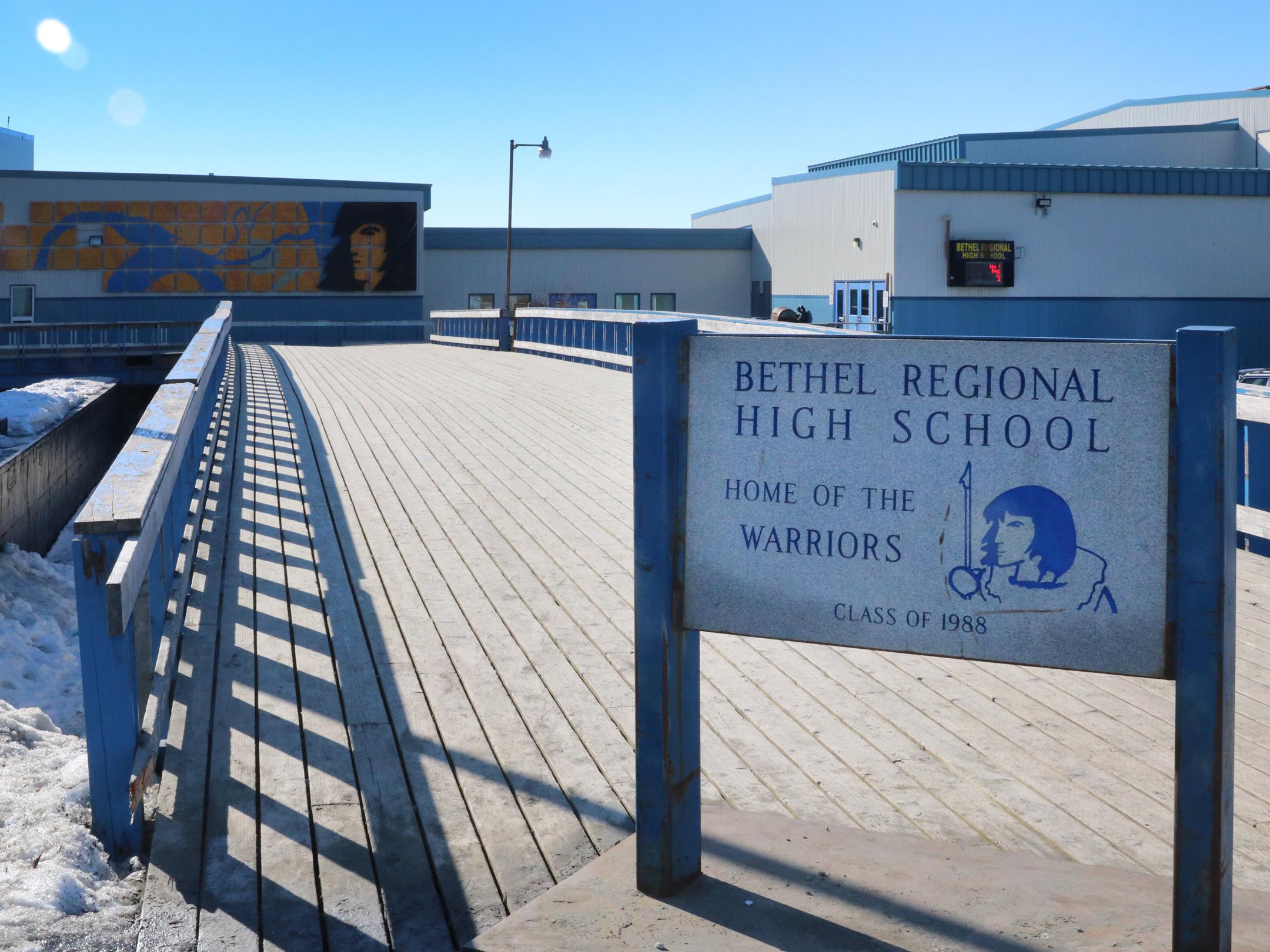
How to better protect students from school shootings is a debate happening around the country.
The survivors of school shootings who chose to continue working in schools provide unique insights into the issue.
KYUK talked with educators who survived the 1997 Bethel Regional High School shooting about changes they would like to see.
Each of these survivors will tell you that they feel safe going to work.
They feel safe sending their children and grandchild to school.
What they’ll also tell you is that the experience of the Bethel school shooting 21 years ago has never left them.
On February 19, 1997, student Evan Ramsey brought a 12-gauge shotgun to the Bethel High School and killed Principal Ron Edwards Sr. and classmate Josh Palacios, while wounding others.
This was before the Columbine school shooting sparked a national debate on how to prevent such things, a debate we’re still having nearly two decades and, by some estimates, hundreds of deaths later.
Sometimes the memories of the Bethel shooting come back to the survivors.
Fannie Black was a high school junior during the shooting and now works as the programs coordinator at Yuut Elitnaurviat.
The building holds both a high school and an adult workforce development center.
Recently, the school held an active shooter drill.
“I couldn’t come to work,” Black said. “I was literally at home crying all day.”
All of these survivors oppose arming teachers.
Bethel Regional High School did institute more security measures after the shooting, and even had an armed guard for a while, but the survivors said that they would prefer fewer guns in schools.
“What if they shoot the wrong student? What if they shoot the wrong person? Because it is so chaotic and it is so crazy when this is happening,” said Reyne Athanas, who was Evan Ramsey’s art teacher. She now works with the University of Alaska Fairbanks.
During the shooting, Athanas told Ramsey again and again to put down his gun, even as he pointed it at her.
Had she been armed, she says, she wouldn’t have shot him, and she doesn’t think teachers would have time to build those skills.
More recent school shootings have used assault rifles, and Athanas thinks that one solution is banning those weapons.
“They’re only designed for killing people,” she said. “The military should have those; the police should have those. You don’t go hunting with an AK-47, and I have tons of guns in my house.”
Melvina Kinegak, who was a high school junior during the attack, doesn’t think gun regulation would have much effect in the Yukon-Kuskokwim Delta.
“This is Alaska. In my parents’ house, there’s probably a firearm in every single room, which is the norm for around here,” said Kinegak, who now coordinates the Dental Health Aide Program inside Yuut Elitnaurviat for the Alaska Native Tribal Health Consortium.
Evan Ramsey carried out his shooting with a shotgun, a firearm routinely used for hunting.
“If he wasn’t going to get it from his house, he would have gotten it from his friend’s house,” Kinegak said.
Many communities in the Yukon-Kuskokwim Delta don’t have law enforcement, and kids have access to guns early in life because they are important for subsistence.
In 2016, Alaska had the highest gun death rate per capita out of any state, according to the Centers for Disease Control and Prevention. Most of the deaths were suicides.
To prevent school shootings, Kinegak advocates for compassion.
“I want to see more understanding instilled in children at a young age,” she said. “I myself, I have a 6-year-old and I’m constantly reminding her to be kind to other kids, because you don’t know what’s making them sad. You don’t know what’s making them hurt at home.”
It was well-known that Evan Ramsey was bullied, and the school took many steps afterwards to reduce bullying.
Many of the people who KYUK interviewed said that they were kind to Ramsey, but he still brought a gun to school.
Carolyn Iverson said more funding is needed to train teachers to spot and deal with traumatized students.
She’s an elementary school social worker now, but was a student when the Bethel shooting happened. Teachers can be part of prevention if they have the resources.
“Which would mean that teachers become trained in how trauma affects the brain and how kids in a classroom may present themselves if they were impacted by trauma, and how the discipline system could support the student instead of making the student feel worse,” Iverson said.
Darren Lieb, who was a staff member during the shooting and is now a health teacher, supports universal background checks for gun buyers.
He said that he has to get a background check every year to coach wrestling, and the goal for the gun screenings would be the same.
“We have an absolute obligation, to make sure that this is the very safest place for our kids to be,” Lieb said.
